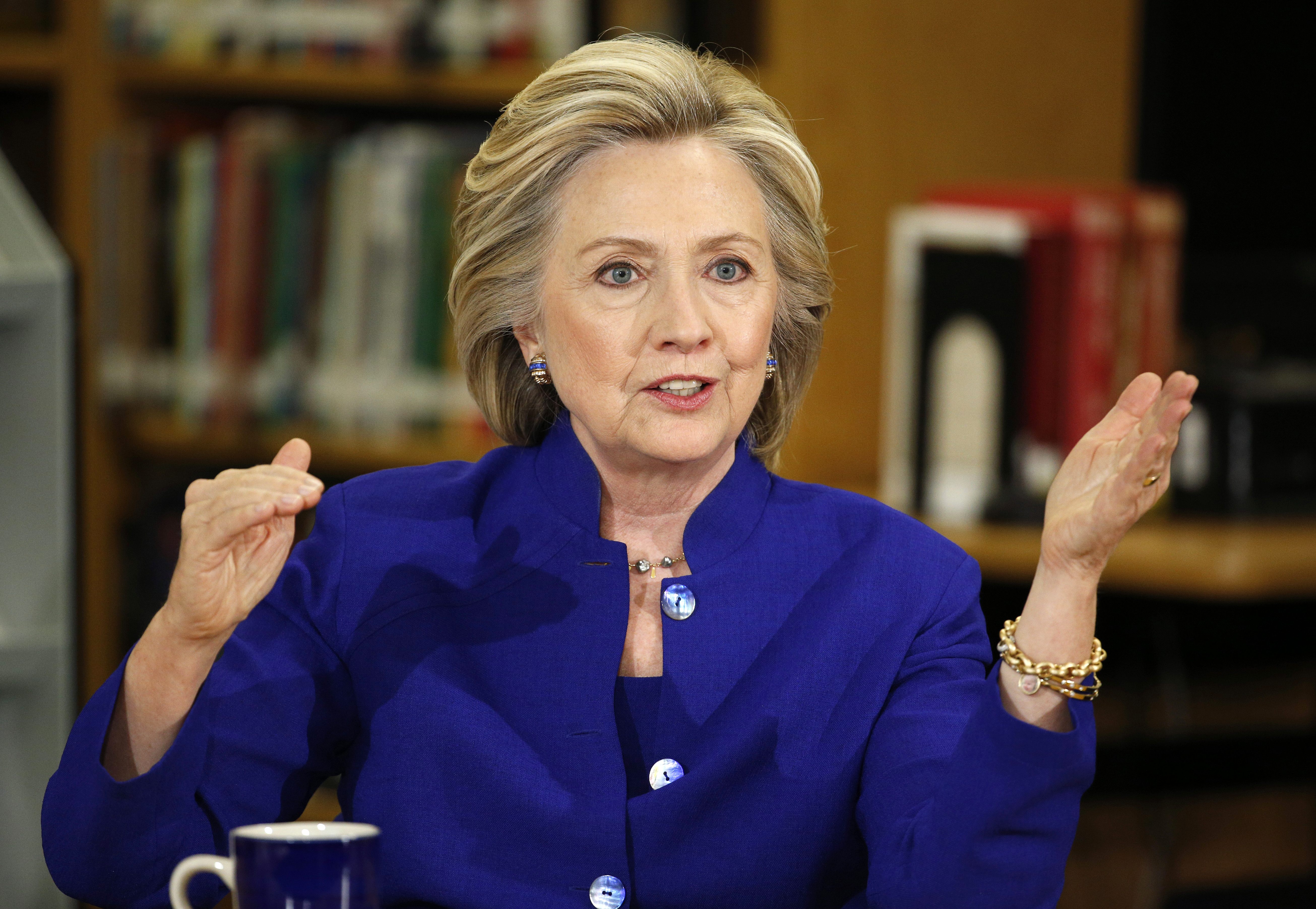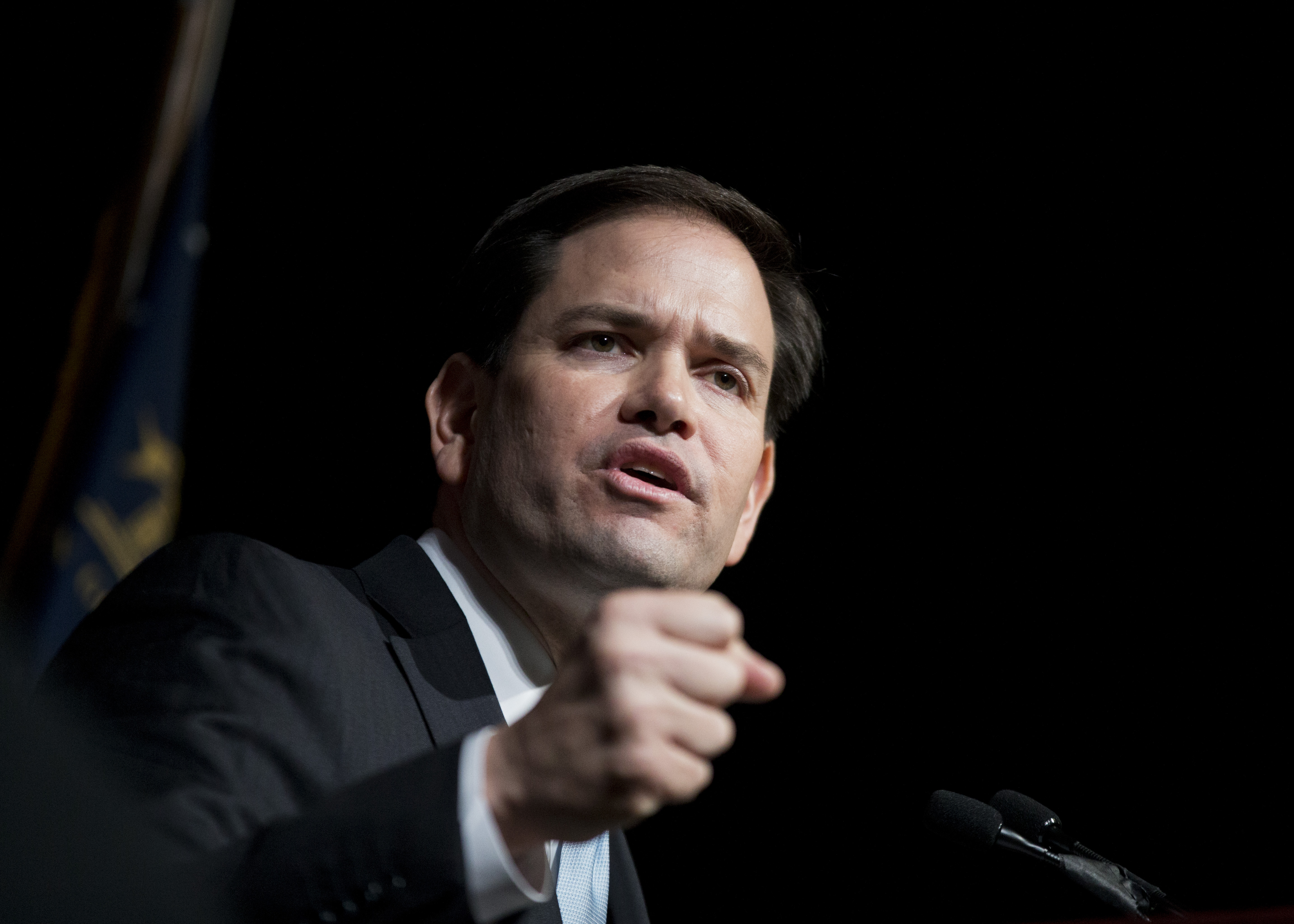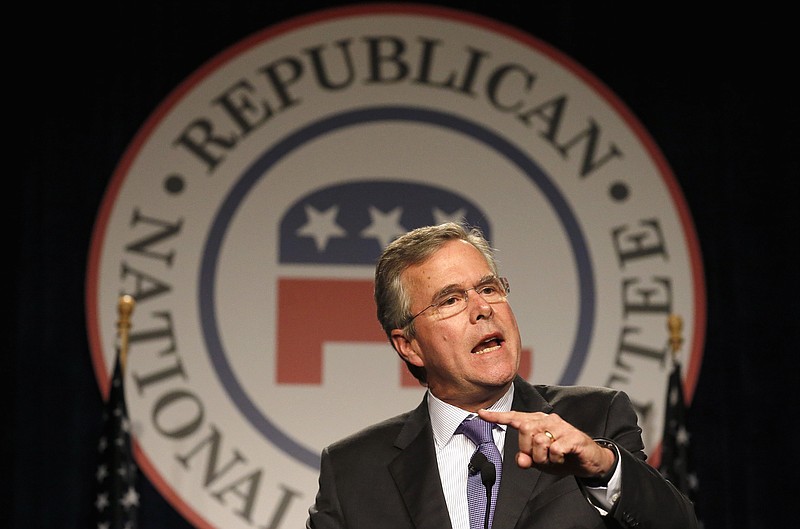Hindsight is a walk in the park compared to making real decisions in real time.
The media is having a lot of sport trying to force 2016 Republican presidential candidates, declared and undeclared, to answer the Iraq war equivalent of "Have you stopped beating your wife?"
The trap, which members of the media intentionally set to trip up the candidates, is whether, knowing what we know now, they would have supported the war in Iraq.
Most of the 2016 presidential Republican candidates weren't in position to answer the question when the original decision was made, not holding the offices they hold now.
And, as then-Secretary State Hillary Clinton famously said about the deaths of four diplomats at the consulate in Benghazi, Libya, in 2012, "What difference, at this point, does it make?"
The set-up is this: If the candidates answer that, yes, they would have supported the war, they are immediately branded as warmongers, as supporters of a war that seems in hindsight to have little if any gain for the country, and as potential nominees who are likely to take us into another unpopular war.
 FILE - In this May 5, 2015, file photo, Democratic presidential candidate Hillary Rodham Clinton speaks at an event at Rancho High School, Tuesday, May 5, 2015, in Las Vegas. Clinton and former President Bill Clinton reported Friday, May 15, 2015, they earned more than $25 million combined in speaking fees since January 2014. (AP Photo/John Locher, File)
FILE - In this May 5, 2015, file photo, Democratic presidential candidate Hillary Rodham Clinton speaks at an event at Rancho High School, Tuesday, May 5, 2015, in Las Vegas. Clinton and former President Bill Clinton reported Friday, May 15, 2015, they earned more than $25 million combined in speaking fees since January 2014. (AP Photo/John Locher, File) If they answer that, no, they would not have supported the war, they look like disloyal Republicans, candidates who wouldn't have trusted a sitting GOP president, and potential nominees who would pose their answer to look savvy to the media and to the electorate -- even if they don't mean it.
The question is especially difficult for former Florida Gov. Jeb Bush, who is the brother of the president under whose leadership the war was entered and executed.
Last week, his answers on the question went from yes to no, vacillations that looked ridiculous and giving his final answer the appearance of pandering to the media and electorate.
For Bush, it was a question he should have anticipated and for which he should have had a ready answer. His brotherly ties to the former president, fair or not, are going to be a part of the discourse when he formally announces his candidacy.
For the rest of the candidates and potential candidates, any answer but a flat-out declaration that they would not have supported the war is a news story where the media is concerned.
The problem is the truth at the time was not cut and dried. Iraq was led by a brutal dictator who was alleged to have a cache of weapons of mass destruction. The goal, which Iraqis supported at the time, was a democratic country that would have given freedom a larger foothold in the Middle East.
Florida Sen. Marco Rubio captured the difficulty in truthfully answering the question on a news show Sunday, acknowledging faulty intelligence but stating the world is better off without Saddam Hussein. Yet, headlines from the left-leaning media say he "struggled" and got "tangled up" in an effort to answer the question.
That's exactly what the media wants. It's not interested in what a candidate really believes or in an answer that weighs the pros and cons of a question. It wants division among Republican candidates -- the ability to pit one against another and bring down the whole lot.
A better answer for Rubio or any other GOP candidate would have been: "I'm not going to re-litigate the Iraq war. I'm more concerned with the problem with ISIS there now, and what I would do is ..."
 Republican presidential candidate Sen. Marco Rubio, R-Fla., speaks at the Georgia Republican Convention, Friday, May 15, 2015, in Athens, Ga. Georgia Republicans will hear from three White House hopefuls, Rubio, New Jersey Gov. Chris Christie and Texas Sen. Ted Cruz as the party gathers for its annual convention Friday. The appearances come as Georgia Republicans look to raise their profile in the 2016 nominating contest. (AP Photo/David Goldman)
Republican presidential candidate Sen. Marco Rubio, R-Fla., speaks at the Georgia Republican Convention, Friday, May 15, 2015, in Athens, Ga. Georgia Republicans will hear from three White House hopefuls, Rubio, New Jersey Gov. Chris Christie and Texas Sen. Ted Cruz as the party gathers for its annual convention Friday. The appearances come as Georgia Republicans look to raise their profile in the 2016 nominating contest. (AP Photo/David Goldman) Clinton, the acknowledged front-runner for the 2016 Democratic presidential nomination, supported the Iraq war at the time, but the then-New York senator in her 2014 memoir gave the pat answer the media is looking for about the question -- that "I got it wrong."
Meanwhile, she is not taking questions, though she has plenty to answer about the foreign contributions to her family's foundation, about the emails she deleted while she was secretary of state and about her role in Benghazi.
That appears to be just fine with the media, which, of course, includes members like ABC's George Stephanopoulos, the former campaign manager and top adviser to President Bill Clinton who belatedly disclosed $75,000 in donations to the Clinton Foundation but has not publicly disclosed his role as moderator, panelist, member, contest judge or featured attendee at annual meetings of the Clinton Global Initiative.
There is important news about Hillary Clinton, though, according to various media. She supports putting Harriet Tubman on the $20 bill, she wrote a letter to a lesbian couple featured in her campaign announcement and she received the support for her candidacy from Beyonce.
Declared and undeclared Republican presidential candidates may want to believe the media is truly interested in their answers to "gotcha" questions, but the sooner they learn it's not the better off they'll be. Unfair though it is, Republican candidates always will have to be more nimble on their feet than Democratic candidates because they'll always be examined under a more powerful microscope.
They need to be ready.
